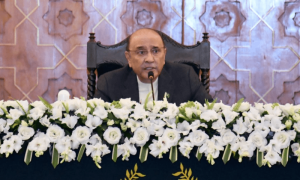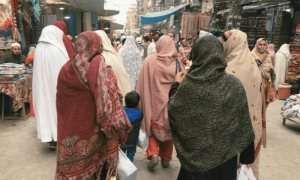BLOODSHED begets bloodshed. Hatred leads to more hatred. But how long can the state allow this unending cycle of violence in Balochistan to continue?
The recent spate of unrest, including the ethnic targeting of passengers in Gwadar, demands unequivocal condemnation. Poor labourers and travellers — often the sole breadwinners of their families — are being targeted for no reason other than their ethnicity. To kill in the name of nationalist ‘resistance’ is morally indefensible.
Balochistan has long been neglected by the state — politically, economically and socially. The sense of alienation is real, and the frustration of its disenfranchised people is fuelled by genuine grievances. But for militant groups to turn this pain into a justification for ethnic violence is nothing short of evil. Those who carry out such acts of terrorism are murderers, plain and simple. There can be no tolerance for the elements who stoke racial hatred.
That said, it is high time the mainstream political parties admitted their failure to engage Balochistan meaningfully. Far too often, Baloch nationalist parties are dismissed as ‘anti-national’ or painted with the same brush as terrorist groups. This approach is counterproductive, it isolates moderate Baloch voices and feeds into the extremist narrative. National parties must listen, engage, and share power in ways that are both just and inclusive.
At the same time, the provincial leadership must ask itself what it has done to uplift the people it claims to represent. Governance remains abysmal, even when elected Baloch leaders are at the helm. They, too, must own their responsibility and do more to provide services, jobs and a future for their youth — before militancy becomes the only path that desperate young men see ahead.
Moreover, Baloch nationalist groups must condemn such heinous acts where non-Baloch workers are singled out and murdered in cold blood. The National Action Plan envisions a comprehensive strategy to end terrorism in all its forms. A key component of NAP is the ‘Balochistan Reconciliation Process’ which, it is hoped, aims to bring disaffected groups into the mainstream.
Provincial ministers have expressed their openness to dialogue. For peace in Balochistan, all stakeholders — the state, political parties and civil society — must act jointly to implement NAP in letter and spirit.
Published in Dawn, March 29th, 2025
















































